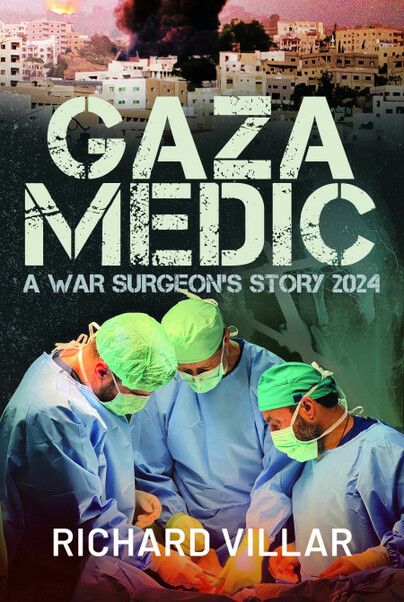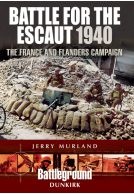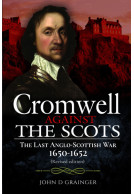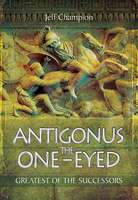Gaza Medic (Hardback)
A War Surgeon's Story 2024
Imprint: Pen & Sword Military
Pages: 192
Illustrations: 20 colour & 40 mono
ISBN: 9781036150204
Published: 16th October 2024
(click here for international delivery rates)
Order within the next 1 hour, 39 minutes to get your order processed the next working day!
Need a currency converter? Check XE.com for live rates
| Other formats available - Buy the Hardback and get the eBook for £1.99! | Price |
|---|---|
| Gaza Medic ePub (22.0 MB) Add to Basket | £6.99 |
No stranger to operating in conflict-torn countries, Richard Villar, a former SAS Medical Officer and current war surgeon, volunteered to provide medical support in Central Gaza during the 2024 invasion. In Gaza Medic, he offers a gripping and harrowing first-hand account of his experiences working in the war zone, where he faced his most daunting challenges yet.
After travelling overland from Cairo across the Sinai Peninsula, Villar found himself working in a 200-bed hospital overrun with 700 patients, including many women and children. Conditions were dire and there was nowhere safe in Gaza. The hospital was under constant threat from drones, missiles, naval shells, and machine gun fire, making it one of the most perilous environments imaginable. Despite these dangers, he and fellow medics performed complex surgeries on victims of bombings. Medicines were limited, equipment minimal, and basic necessities such as clean water and sufficient food were luxuries.
Villar’s moving account transcends the politics of war to focus on the raw, often brutal, realities faced by medical professionals in conflict zones. Each day brought more mass casualties, with a healthcare system on the brink of collapse and the population facing decimation.
Gaza Medic is essential reading for anyone seeking to understand the true impact of the Israel/Palestine conflict on individuals and communities. Villar’s narrative is a vivid reminder that courage can be found when there is chaos all around.
Heroes Behind Headlines Podcast
Rating: 5 out of 5 stars
NetGalley, Byron Flekke
Gaza Medic, by Richard Villar, is an important book. Villar is no stranger to being a surgeon in conflict zones. Villar covers many topics in this diary from his time in Gaza, including the phrase conflict zone. He touches on how it's important for doctors to remain neutral. As a medic you’re there to do your job. Politics isn’t your area, warfare isn’t your area, medical aid is your area.
WoW what an excellent book Gaza Medic by Richard Villar was. This was a book that just took My breath away, and a must read! It is a War Surgeon's Story, Richard Villar, is a former SAS Medical Officer and current war surgeon, who volunteered to provide medical support in Central Gaza during the 2024 invasion. In Gaza Medic, he wrote a gripping and harrowing first-hand account of his experiences working in the war zone, where he faced his most daunting challenges yet. Despite all these dangers, he and fellow medics performed complex surgeries on victims of bombings. Medicines are limited, all equipment minimal, and basic necessities such as clean water and sufficient food were luxuries for everyone.
NetGalley, Nessa Thompson
This book is a moving account that transcends the politics of war and focus on the raw, and often brutal, realities which is faced by medical professionals in all conflict zones. With each day passes it brings more mass casualties, with a healthcare system on the brink of collapse and the population facing decimation. WoW......just took My breath away and I could not stop reading it!
BBC Radio Shropshire
The Guardian
Friends of Millbank
Rating: 5 out of 5 stars
NetGalley, Jamie Barringer
This is a heavy topic, especially since the violence that caused all the trauma in this book is still going on today. But, for anyone who has been watching Israel's war on Gaza , this is a valuable perspective on the war and some of its consequences so far. This is a very readable account of life in a Gaza hospital, as told by a war-surgeon from the UK who was part of one of the international medical aid programs trying to mitigate the damage to Gaza's civilians.
Eye for the Light e-Magazine
Rating: 5 out of 5 stars
NetGalley, Jax Davis
This is an extremely important book, a diary of a war surgeon, that gives a lot of insight into the things that happened on the ground. To understand the situation in Palestine, you shouldn't just read a single book. But this is a book that adds to the collection of must reads.
It's really hard to describe a book like this. I wanted to believe that this isn't real, that this isn't happening in today's world, but having the truth laid bare makes that impossible.
NetGalley, Taylor Banze
I can't begin to imagine the heartache, fatigue, and anger that Richard Villar and his fellow doctors felt seeing all of the senseless violence and trauma currently being thrust upon the people of Gaza. Even more, I can't imagine the heartache the citizens feel. The mothers who have lost their children, the children who have lost their parents, the victims who have lost their limbs, and so on.
I hope that people can read this book and see past the politics to understand that humanity is hurting.
Rating: 5 out of 5 stars
NetGalley, Hannah Chapman
I really enjoyed this book.
It was a really interesting insight into one doctors experience providing medical aid in Gaza.
The author used his daily diary entries to collate an interesting, heartbreaking read.
I feel like the author gave his experiences and account of his first hand view of what continues in this ongoing conflict. Whether you agree with one side or another, you cannot deny someone sharing they're own experiences and I think the author did this very well.
It was an emotive read, but this was expected, and I liked how the author chose to share the raw truth rather than dim down the horrors he faced.
Rating: 5 out of 5 stars
NetGalley, Beth Strellis
This short memoir was an incredible read, very raw and honest about the experiences the author went through and an intriguing and insightful read.
Rating: 5 out of 5 stars
NetGalley, Rachael R
I found Gaza Medic a deeply moving account of what it's like to work as a medic in Gaza. Villar revealed what it was like to enter a hospital as an orthopaedic surgeon and find a 100% wound infection rate, and the experience of watching a man from World Central Kitchen cross the border into Gaza where he would be dead within the week. However, there are other perspectives, too, such as the magnificent birdsong around the hospital, how local people experiencing famine still observed Ramadan, and the moving poetry of Refaat Alareer. The story will stay with me for a long time and is compelling reading for anyone interested in humanity.
Rating: 5 out of 5 stars
NetGalley, Sadia Ambreen
Richard Villar, an orthopaedic surgeon, goes to Gaza ONLY to treat the casualties of the Occupation. Now he is the witness to the truth, and he fulfils the duty. The Book is brilliant and an eye-opener to the gravity of the situation and the extent of destruction. An absolutely remarkable and highly recommended read. My heartfelt gratitude to Dr. Villar and Medical Aid for Palestinians.
Rating: 5 out of 5 stars
NetGalley, Janet Mooney
This book is told from Richards time as a medic at Al Aqsa hospital in Gaza.. It is just heartbreaking, reading a first hand account of what is happening on the front line of an ongoing war. It brought tears to my eyes when reading it. It will make you cry and very angry at what is going on. I would encourage everyone to read this book.
Richard Villar cuts through the politics, the propaganda and the bullshit to share a personal story of pragmatic combat medicine performed in Gaza today; of pain, bravery, stoicism, and determination. A deeply impressive demonstration of a selfless medic’s enduring and impartial love for his fellow man.
Lt Col (Retd) Richard Williams MBE MC, former Commanding Officer 22 SAS.
Read this book if you want to learn how to keep your head whilst saving lives in one of the most dangerous war zones in the world today.
There are no words. In a couple of sittings, I devoured Gaza Medic and now there are tears running down my face. What Richard Villar has written is one of the most powerful pieces of prose I’ve read in a long time. The most important book, I’ve ever had the privilege of reading perhaps. It was raw, honest, vulnerable, humane, captivating and incredibly written. Richard Villar has a voice which is so very distinctive and his own. To publish this book is an act of bravery and for that, I commend him, thank him for writing his story and for trusting the world with it. I thank him for going to Gaza and for risking his life for the innocent. This book gave me hope. Hope for the 21st century and hope in my own power as a single human being in this our tragic, messed up world. My only hesitation to writing this review is that I am just me and I feel unworthy of the book. Its words seem to some extent even too great for my eyes to read. Nevertheless I will try.
Ayesha Sheereen, Student of Comparative Literature and Russian (University of St Andrews, United Kingdom)
This book is perhaps the truest piece of prose the 21st century is yet to see. Richard Villar writes with raw vulnerability and rare humanity, turning the statistics from our digital screens back into people. It gives voice to the brave and innocent individuals who asked for none of the violence yet received it all.
The book’s humane lens stretches from describing the brutal limitations of war surgery to capturing small moments of beauty from Palestinian traditional life. It is without a doubt that the flame of Palestine will stay bright even as Gaza is turned to dust.
Richard Villar’s determination is extraordinary and inspirational. He is living proof of the capacity each individual holds to make a difference if only they decide. For anyone who wishes to act but does not know how, pick up this book and read.
This is an extremely compelling book, one which anybody seeking to understand the realities of the war in Gaza should read. Based on diary notes made at the time, it is an extraordinarily detailed and powerful record of what one man - a highly experienced war surgeon not given to hyperbole, and with no personal axe to grind - saw, did and thought while working as a volunteer in Gaza. In places it might well make you weep, particularly for the children. It will also - or it should - make you angry. The horror it remorselessly and vividly exposes is so distant from our everyday experience of life in the UK as to be almost beyond comprehension, as is the extraordinary resilience of the Palestinian people in the face of unimaginable adversity.
Major General A P N Currie CB CBE (Winchester, United Kingdom)
For the most part the book is a fascinating if horrifying factual account of the day-to-day life of innocent civilians caught up in a war in which they are treated as entirely dispensable; and of the efforts of a small band of remarkable people who put their own lives on hold and in great danger to help. The vignettes about individual patients, the myriad of complex medical conditions they present, and the complications of their treatment are extraordinary in themselves, and breathe life into the story. The occasional glimpses of normality intruding into the squalor, such as children flying kites, are almost surreal. But it is the sheer scale of the catastrophe - whether measured by the appalling level of casualties, the deprivation or the utterly callous destruction of the infrastructure of a country - which perhaps hits hardest of all. The impact will be felt for decades to come, not least on the mental health of a generation of children.
At the outset the author writes “I am a surgeon not a politician and do not take sides”, and for the most part he is true to that claim. Very occasionally (and entirely understandably) he does allow speculation to creep in about Israeli motives, and where he does the partisan reader might be tempted to suggest he is seeing ghosts where they do not exist. Yet such speculation is rare and always supported by argument, and my own sense is that this book gets closer to the truth about the war in Gaza than anything else I have read. Moreover, with the unequivocal evidence of systemic brutality and callousness towards the civilian population, which is laid out so clearly, it seems to me impossible not to take the side of the Palestinian people in their struggle to survive.
What this book is in fact describing in raw and often harrowing detail is the committal of a war crime taking place on an extraordinary scale before our eyes, a war crime for which there can be no justification. However depraved the act of barbarity launched against Israel by Hamas that catalysed the invasion, and however sympathetic we all must be for the families of those killed, brutalised or taken hostage in the October 2023 attack, this is no way for a civilised nation or an army to behave. As a soldier myself I find it impossible to regard such indiscriminate death and destruction as unintentional; and impossible to understand why so many of our politicians cannot or will not see it for what it is and say so, which smacks of moral cowardice. They should go and see for themselves what is happening on the ground.
The tragedy of what has and is still taking place is perhaps matched only by the tragedy of an opportunity lost. Following the brutal attack in October 2023, Israel had the opportunity to harness the sympathy of the world and use it to isolate Hamas and create a new dynamic. Instead, it chose to launch a campaign with an unachievable military objective which it has pursued with no apparent concern for collateral damage, no humanity and no sense of proportionality.
In these days of 'instant' news and sensationalist, judgemental, polarised social media posts, we all have an opinion on everything. This book exposes the naivety of these quick judgements and takes the reader into an all too real and complex world of life in a war zone, where systematic devastation is the norm. This book reveals the frontline behind the frontline, the line dealing with the human tragedy of war. The unreported short and long term consequences. The army of people who try to treat the wounded regardless of personal safety or consequences. When a conflict reaches this level of depravity, it is no longer about right or wrong.
Chris Coe, Photographer, Founder & Director of Travel Photographer of the Year and Chair of the British Guild of Travel Writers (Suffolk, United Kingdom)
Gaza Medic rips the shrouds from the political posturing and propaganda, touching on daily realities for the people of Gaza. It highlights, too, that no matter what the outcome of this war, the people on the ground live without hope and with a blighted future. In Gaza there are only losers. It's also a testament to human spirit and fortitude of both the victims and the people who place themselves at the forefront of caring for them. They all deserve our utmost respect.
Read Gaza Medic, even if you think you know what is happening. Read it regardless of your political or religious allegiances. It is the worst and the best of humanity. It's a wakeup call to the world and our so called leaders. It is a cry for the return of truth in our manipulated world. Read it and open your eyes to the reality of conflict and human-induced famine, then dig deep to find empathy. Just read it!
There are stories that must be told, not just for the sake of truth, but to raise awareness and evoke compassion. The book you hold in your hands is one such story. It is the compelling account of a courageous man, a war surgeon and former SAS, who dared to undertake a dangerous mission in a humanitarian effort during the Gaza conflict in March 2024.
Enrique Steiger MD, Founder SWISSCROSS.ORG (Zurich, Switzerland)
My dear friend and colleague, whose determination and compassion I have always admired, offers us in this work an unvarnished and truthful glimpse into the horrors of war. With a small but dedicated team, he faced an overwhelming influx of injured civilians who needed care under the most challenging conditions. Amidst chaos and destruction, he fought for the survival of his Palestinian patients and colleagues as relentless shelling continued unabated.
Richard Villar and I have known each other since the years we worked together for the International Committee of the Red Cross in Tripoli, Lebanon. I immediately took a liking to this tall, slender Brit with his dry British sense of humor and always carrying a big smile on his face. Not only was he a brilliant and experienced surgeon, but also a thoroughly empathetic person, distinguished by his compassion and concern for the fate of our war-injured patients. Richard had already completed several humanitarian missions when we met in Lebanon. However, the mission in Gaza 2024, described in this book, will probably mark him for the rest of his life and pushed him to the limits of what humans can endure in terms of witnessing so much despair and suffering.
When I asked Richard two years ago if he would like to participate in one of our humanitarian missions in Iraq or Afghanistan, he waved it off, saying that he was too old for it and preferred to focus on writing and publishing scientific articles. In this book, he clearly demonstrates his talent for writing. It is not without irony that I now write about his decision to support the Palestinian people in the spring of 2024 at the most dangerous place on this planet.
This book is more than just a memoir or a war diary; it is a testament to resilience and humanity amidst unimaginable atrocities. The experiences described here reveal not only the physical challenges faced by a war surgeon but also the deep psychological scars such missions can leave. It is a narrative of courage and despair, of hope and loss, confronting the reader with the harsh reality of life in a war zone.
In the hope that his story will not only inform but also touch you, I invite you to embark on this impressive journey into the heart of the Gaza conflict. May his writings remind us all that humanity and empathy can shine even in the darkest times, and that we must not accept crimes against humanity committed on both sides. In conflicts, it is not about skin color, race, origin, ideology or religion, but always about people in need, fighting for their survival and dignity as humans, mostly caught innocently in the crossfire of national and international interests.
Richard Villar represents the voice of these victims, tells their story and their fate, ensuring that these atrocities receive their deserved international attention beyond Gaza. Even though it is difficult, as a doctor amidst this conflict and suffering, to hold back one’s opinion, he admirably embodies the stance of a physician who fulfills his role as a surgeon neutrally, independently, and impartially. A war surgeon is a physician, not politician, as he mentions several times in in his book; his full attention is solely directed toward the well-being and survival of his team and his patients.
In the midst of a complex and deeply rooted conflict, finding common ground on the events of 7th October 2023 remains elusive. Whether we label it as war or genocide, or debate the tragic toll in Gaza, one fundamental truth emerges: the people of Israel and Gaza must unite to carve a path toward a shared future.
As I write these words, more than nine months have elapsed since the Hamas attack on Israel, yet the conflict persists. The statistics paint a grim picture: according to United Nations figures, over 39,000 people have lost their lives due to Israeli strikes in Gaza, and 120 hostages remain in Hamas captivity. The prospect of peace feels distant and uncertain.
Now, more than ever, it is crucial for Palestinians and Israelis to unite in solidarity, engaging in open dialogue that welcomes criticism from both sides without fear of retribution. Richard Villar’s story exemplifies the urgent need to end the bloodshed and conflict. Regardless of identity—whether Palestinian, Israeli, Jew, Christian, or Muslim—every individual deserves a future free from violence and vengeance. Retribution does not resolve problems; only a steadfast commitment to understanding and cooperation can pave the way to lasting peace.
Let us focus on what unites us rather than what divides us and work tirelessly to create a world where future generations inherit peace and prosperity. Together, we can build a better tomorrow. This narrative is embodied by courageous and committed humanitarians like Richard Villar, who risk their lives and health for the well-being of those in need. His dedication serves as a beacon of hope and a testament to the power of humanity and engagement.
In deep admiration and gratitude for his friendship.
Gaza Medic is not just a book, it’s Richard Villar’s personal experience as a war surgeon and a humanitarian. His entry into the Central Gaza war zone in 2024 was risky, his survival difficult and his exit unpredictable.
Vincent K. Solomon MS FICS FACS (Mungeli, India)
His work at the 200-bed hospital with minimal facilities, practically no trained staff, an absence of basic medicines and equipment, an inflow of 700-plus patients, including women and children, is truly commendable. Keeping in mind the endless, heartbreaking casualties resulting from drones, missiles, naval shells, machine gun shots, a 100% infection rate, malnutrition, stress and a failing health care system, this must have been daunting indeed. To top it all there were endless hours of surgeries, coupled with sleepless nights, a paucity of food and clean water, unpredictable missile strikes shattering windowpanes, causing a lot of psychological issues.
Villar exemplified raw courage in the midst of chaos and his book is a revelation affirming that any kind of war, logical or illogical, religious or political needs to be shunned and condemned.
The author wonders whether rules of war apply to the Israeli-Palestinian conflict. There is room to broach further on what I think is a central notion. Of relevance is a study commissioned in 1999 by the ICRC, the “People on War Project”.
Sylvie Thoral (Marseille, France)
“To mark the 50th anniversary of the modern Geneva Conventions (on 12 August 1999), the ICRC launched its People on War project with the aim of building greater respect for fundamental humanitarian principles. At centre stage is a worldwide consultation giving the general public a chance to air their views on the many facets of war. The idea was that civilians and combatants alike would be able to share their experiences, express their opinions on what basic rules should apply in war, discuss why those rules sometimes break down and look at what the future holds. With this in mind, the ICRC commissioned Greenberg Research, Inc. to design a research programme that would enable people to be heard in the most effective way possible. Under the guidance of Greenberg Research, ICRC staff and Red Cross and Red Crescent volunteers carried out this consultation in 12 countries (Afghanistan, Bosnia-Herzegovina, Cambodia, Colombia, El Salvador, Georgia/ Abkhazia, Israel (with) the occupied territories and the autonomous territories, Lebanon, Nigeria, Philippines, Somalia and South Africa), conducting in-depth, face-to-face interviews, group discussions and national public opinion surveys. Surveys on the basis of a questionnaire only were conducted in a further five countries (France, Russian Federation, Switzerland, United Kingdom and United States) in order to reflect these people’s perceptions of war.”
The main findings of the consultation carried out among Israelis and Palestinians were appalling and underlined the irreconcilable dispute at its heart: the right to live on territory claimed by two peoples. A matter of occupation on the one hand and survival on the other. In addition, it was a total conflict as Israeli and Palestinian societies have mobilised for war to an extent greater than perhaps any other place in the world, the report said. Total conflict meant that there were few limits to the war.
An update to the initial report was published in 2016. Unsurprisingly perhaps, the percentage of Palestinians and Israelis who consider that rules of war do not apply had increased respectively by then. We can easily imagine that those figures would even go higher were we to conduct a similar survey today.
I had pleasure in reading this book, Gaza Medic: A War Surgeon’s Story 2024. Well, pleasure might not be the most appropriate word, but I appreciated the author’s intentions. I really did.
In my view, a great merit of the book is to explain the challenges and specifics of war surgery to non-medics (I liked very much the part on negotiating theatre space). It is an important endeavour as it will help the reader realise how devastating the current conflict is in the (very) long term. I was particularly moved by the chapter “One Million Operations”, even more so considering that since the author’s mission, many more people have been seriously wounded without the health facilities inside Gaza having improved in the meantime; quite the opposite.
Another merit of the book is to touch upon the ecological damage of warfare, and to encompass all the living. This aspect is often downplayed, if not totally ignored.
How many animals lost their lives during the Great War? How many donkeys died in the course of the Eritrean Ethiopian conflict (I was told more than a million!)? Who keeps those records anyway? Yet birds keep on singing in Gaza, at least they still were when the author was there...
What worries me hugely is how the incredible amount of rubble generated by such insanity will be dealt with. My best guess is that it will all end up in the Mediterranean Sea just as large sectors of Southern Beirut Dahieh did in the aftermath of the 2006 blitzkrieg-like war.
Another merit of the book (and I will stop here which does not mean that I have exhausted all of them in my rendition) is to give credit to Palestinian society and to present key aspects of it, be they culinary or otherwise. The author may sound a little scholarly at times, but it is not often that we get to hear about Palestine in that way.
In my Marseille home I keep preciously a photograph in black and white of a bunch of young boys that a visiting friend and I met on the Tell al Hawah beach one sunny day of 1997. Guess what? They were flying kites at the beach like so many Palestinian boys. What the author writes about kites and their meaning echoes dearly with my own fond memories of the place.
One last comment: the author regrets the absence of reports from foreign journalists inside Gaza. True enough that they were scarce, but does it really matter? Do we really need foreign journalists to analyse what is going on, to decipher all that comes through social media directly from the affected population? It was and still is overwhelming. There might of course be a degree of falsification in the lot. But isn’t this closer to reality than the reports on the Gulf War that kept coming from journalists embedded with the US Army? Anyway, this Israeli-Palestinian conflict is one of the most extensively analysed and yet polarisation is still at its peak. There may thus be no space for neutral journalists either.
That is why testimonies like Richard Villar’s remain as important as ever even if Truth is always the primary victim of war, as he writes.
This was an impressive read. It made me dislike a lot of things… and appreciate many others. Realizations came through, like the fact that an orthopedic surgeon is in fact a doctor, first and foremost…
Alain Tranchemontagne, CEO HydroCision (Rhode Island, USA)
So, here’s what I would say, for brevity:
Visceral. The raw reality is eye opening. A must read to grasp ground-level nuances of one of the most important challenges of the century!
Thank you for sharing. I was really impressed. I’ve always known Richard Villar as a man of many talents. I must now add ‘incisive writer’ to that list…
P.S. One 4oz tube of toothpaste is all you need for 3 weeks…
Always start with the Dedication if you wish to understand the author. Richard is speaking for everyone who has ever practised medicine in conflict, he has bared his soul, even if not overtly religious, and shown his motivating force, his love for others: ‘To those affected by warfare, wherever you may be. You deserve better.’
Col (retd) David Vassallo FRCSEd DHMSA MA (History of Warfare) L/RAMC, Chairman, Friends of Millbank, UK (www.friendsofmillbank.org)
The book’s 17 chapters, from ‘Getting Ready for Gaza’ to an emotional ‘Leaving Gaza’, describe in vivid detail Richard’s voluntary deployment in 2024 as an orthopaedic war surgeon with an Emergency Medical Team from Medical Aid to Palestinians, to support the Al Aqsa Hospital in Deir-al-Balah in Central Gaza, during the Israeli invasion after the Hamas attacks of 7 October 2023. Their neat titles belie this very personal and moving story, this journey to hell on earth – a man-made hell, full of fear and ever-present danger, of wanton death and deliberate injury, mainly affecting women, children and the elderly in their thousands and ten thousands, yet one illuminated by hope and inspiration, by stories of steadfastness in adversity, of innovation and resourcefulness, of lessons learned and re-learned, and of the human spirit at its very best.
Richard’s story is simply and clearly told, and all the more powerful for that, as his Foreword testifies: ‘I brought some light into the Gaza darkness. Talking, taking sides, or having an opinion is insufficient.’ Throughout he wears his heart on his sleeve, and while trying to remain apolitical he hides nothing from the reader in facing up to man’s cruelty to man, including his fears and emotions, and his trials and tribulations – and those of others far, far worse off than himself. There is one telling exception - he keeps secret for their safety the names of many of those who helped him, other than the overseas members of his Emergency Medical Team – a sad indictment of how medics and aid workers, ambulances and hospitals, are purposefully targeted in this conflict.
Gaza Medic, this powerful eye-witness account, certainly shows how the author, an erstwhile SAS military doctor, now a renowned orthopaedic and humanitarian war surgeon, has given his all to help others. He has come a long way, retaining his humanity always, since he published a Personal View in the British Medical Journal as a junior doctor in 1979. If you could choose only one book to visualise and appreciate the tragic reality of Gaza at war, and frontline surgery, this is the book. Be inspired, and in your own way bring some light into the Gaza darkness.
Richard Villar will be delivering the Friends of Millbank Haywood Memorial Lecture, ‘Gaza Medic – A War Surgeon’s Story 2024’, in person at Millbank and on Zoom, on Friday 28 March 2025. All are welcome.
Gaza Medic is a must-read for anyone who wants to understand what it is like to operate in a warzone where chaos rules, and civilian suffering is at the heart of the conflict. As a surgeon and soldier with decades of operational experience on the battlefield and disaster zones across the world, Richard is well-placed to offer an unbiased account of what is truly happening on the ground to the predominantly young, innocent, and elderly. His leadership, bravery, and compassion are a source of strength and inspiration to both colleagues and patients.
RJL, UKSF(R)/Security Consultant/Oil and Gas Engineer (Newmarket, United Kingdom)
Richard Villar offers a compelling and heartfelt account of his experiences as a volunteer trauma surgeon in the war-ravaged Gaza Strip in 2024. This book provides a clear and striking chronicle of what must have been three of the most challenging weeks in the author’s extraordinary life. Villar's engaging narrative unfolds as a series of vivid images that flow effortlessly from the planning stages of his journey to his return home.
Dr Stephen Cumbers MB BS MSc MRCGP MRSC CSci FIBMS FRSA, Medical Doctor and Chartered Scientist (London, United Kingdom)
The reader becomes a close companion, experiencing what it might have been like to walk beside the author through this most harrowing of times. Each chapter begins with an evocative, sketch-like illustration that serves as the perfect backdrop to Villar’s polished and articulate prose. Although Mr Villar is a veteran clinician, his descriptions of the severely injured are far from purely clinical—they are profoundly human.
The book is a masterwork of clarity, skilfully weaving together the poignant with the pragmatic, the utterly astounding with the oddly mundane. This authoritative report stands as both an outstanding testament to the brutal ravages of Gaza and to the author’s courage and dedication. Gaza Medic by Richard Villar is a powerful and inspirational first-hand account of practical humanity in the face of raw inhumanity.
It's such a compelling read that I couldn't put it down and have already completed it. It is EXCELLENT!!! Extremely well written and tells the horrors of the Gaza War bravely and without pulling any punches. If anyone has any doubts about what's going on there, they should read this book. Perhaps those world powers who ought to be in a position to force the combatants to cease hostilities and rehumanise themselves should be made to read it - it might make them realise just how pathetic they're being, sitting round a table and pontificating without seeing the horrors first hand. Greatest respect to Mr Villar, both for his efforts in Gaza and for producing such a timely book.
Tony Williams, Proof-reader (Beverley, United Kingdom)
The Westmorland Gazette
As featured in the article ‘I couldn’t say to my grandchildren I just watched it happen’ – Cumbrian surgeon’s time on Gaza’s frontlines
Cumbria Crack
About Richard Villar
Richard Villar is a world renowned orthopaedic surgeon. He served with the SAS before moving to his current career. He lives in Essex but operates in London, nationally and internationally.
















